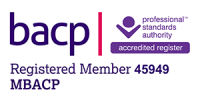Your troubles in the present may never shift if you don’t look at your past experiences. Here’s why.

“So, tell me about your childhood…”
It’s one of the most popular stereotypes of psychotherapists, that we just want to talk about past experiences and blame everything on your parents! No wonder when people approach our services for help, they often stress that they want to let go of past events and stick to their present troubles.
After all, if you can find tools to tackle your current problems without digging up memories of painful times, why bother? The past is the past, right? There’s nothing you can do to change it.
Well, kind of… you can’t change your past experience, but you can change your thoughts and feelings about it. And you can change the power it has over your mind and your current life.
How our childhood shapes our personality
Lindsay Gould, a therapist working in Brighton, offers the example of a man who has been admonished for crying. “If, when in pain as a child, he was told that crying’s babyish or not masculine, he is likely to take that belief with him into adult life. He may feel incapable of expressing emotion, particularly fear and hurt, if he thinks that shows weakness, and that is likely to impact his relationships. Through recognising the source of the belief, he may realise that he can dispute it.”
That last part is really important. As young children we tend to believe what adults tell us, without questioning it. So if a parent tells their son that crying is babyish, then the boy accepts that.
He carries the belief with him into adulthood, feeling it as a natural truth. Even if people tell the man it’s fine to cry, even if he gets it rationally, the belief that crying is babyish still feels true to him.
He might have problems in an intimate relationship as an adult, because he can’t show his partner when he’s hurt. If he is given the guidance ‘You just need to open up more when you’re upset,’ it probably isn’t going to help because that feels so wrong to him.
To change his feelings and behaviour in a way that sticks, he needs to change the underlying belief. And to change the underlying belief, he needs to understand that it is just a belief, not a truth. This involves reflecting on his early experiences and acknowledging the impact of all the times others told him to stop crying or praised him for being a brave little soldier.
These early beliefs we hold onto come in lots of different flavours, many of them negative. Some of the most common are I’m weak, I’m unlovable, I’m stupid and I’m too much. These are all variations on the I’m bad theme, but children also absorb beliefs about other people or the world in general – others can’t be trusted, the world is a dangerous place, women are manipulative, and so on.
So many of these beliefs that underpin our adult behaviour just aren’t true! Sometimes, the people we picked them up from don’t even believe them themselves. The parent who tells their son to be a brave little soldier might only be doing it because they can’t bear the hurt of seeing their son crying. The reason a child calls a classmate stupid might be because they fear that they’re stupid themselves. The grandparent who declares their grandchild ‘too much’ might just be embarrassed that they haven’t the energy to keep up.
Yet the child hears these things and takes them to heart, embedding them into their personality. They incorporate these beliefs into a blueprint for how the world is, then they look for evidence that that blueprint is right.
So the next time a teacher says “There there, don’t cry,” to our brave little soldier, he remembers what his parent said and hears the teacher’s comment as a rebuke (you shouldn’t cry) rather than an attempt to comfort him. In this way, the beliefs get reinforced.
We all do this – looking for things that fit with our blueprint and dismissing things that don’t – as we feel more secure when our blueprint isn’t challenged.
Early experience and relationship style
Sara Barry uses an attachment-based approach in her psychotherapy practice. She finds that for many people, the area where their blueprint causes most problems is in relationships.
To greatly oversimplify attachment theory, if our significant childhood relationships were secure due to our parents/caregivers being attuned to, and responding to, our needs and helping us to manage our emotions, we will likely be able to form secure relationships as adults. However, if we felt insecure in these early relationships, we may find it harder to form healthy adult relationships.
Imagine a girl whose parents are neglectful. Instead of having an experience of how a healthy relationship feels, she grows up learning how to be in relationships with neglectful people. When she is choosing who to form an adult relationship with, she may unconsciously choose a person who will neglect her, because that feels familiar and fits with her blueprint.
Developing an understanding of her attachment style and its origins can help to loosen the control that her past has over her, and help her to have more choice in her present situation. As Sara points out, “What we can change by talking about past relationships is how we think and feel in the present, and that offers choices for how we want our future to be.”
We can change not only who we are in relationships with, but also how we are in relationships. As a child, the girl with neglectful parents will develop coping mechanisms (ways to help keep herself safe from the neglect). Perhaps she will become very independent, looking after herself because she cannot rely on her mum and dad to do it. When she grows up, she is likely to behave in the same way in her adult relationships, even with people who don’t neglect her.
This might seem strange – why doesn’t she see that the coping mechanisms no longer help once she’s away from her parents? It’s partly because the coping mechanisms are unconscious habits – she doesn’t realise she is behaving that way or may not know how to act differently – and it’s partly down to her blueprint. Her blueprint says that others are neglectful, so she expects partners and friends to be neglectful and looks for any hint of inattention as evidence that they are.
She may then revert to the old and familiar ways to cope by that served her so well as a child – relying only on herself. Only now they might not serve her well. Instead they may create problems – her partner may complain that she takes charge of everything, her friends may be hurt that she doesn’t open up to them, she may find it hard to delegate at work, the stress of doing everything on her own may impact her health, and so on.
Learning to let go of the past
So, the coping mechanisms that serve us well as children often create problems in our adult relationships. Integrative therapist Ben Marks explains it to his clients with the metaphor of an army with out-of-date strategies.
“This army has never evaluated its past and is stuck in patterns and rituals that are no longer appropriate. An air craft carrier isn’t going to stop terrorism. Once you understand and evaluate your history, you can deal with the present.”
Ironically, letting go of the past doesn’t mean forgetting about it or ignoring it. Rather, we move forward by looking at our past lives, facing difficult memories and learning how they impacted our mind and thus affect our present situation. By doing that, we reduce the power of the past over us, and we start to notice improvements across our lives – in relationships with others, at work, in our health, and so on.
Looking at the past can feel scary
If you fear looking at your past, remember that you will always be in control – our therapists are there to help and guide you; they aren’t going to force you to talk about anything you’re not ready to.
And in my experience, clients often expect looking at their past to be harder than it turns out to be. They also tend to be surprised by how much it can help their lives, and to be glad they made the decision to go there.
Kate Crawford is Head of Therapy Services at One Therapy London.
Share this post with someone you know.

